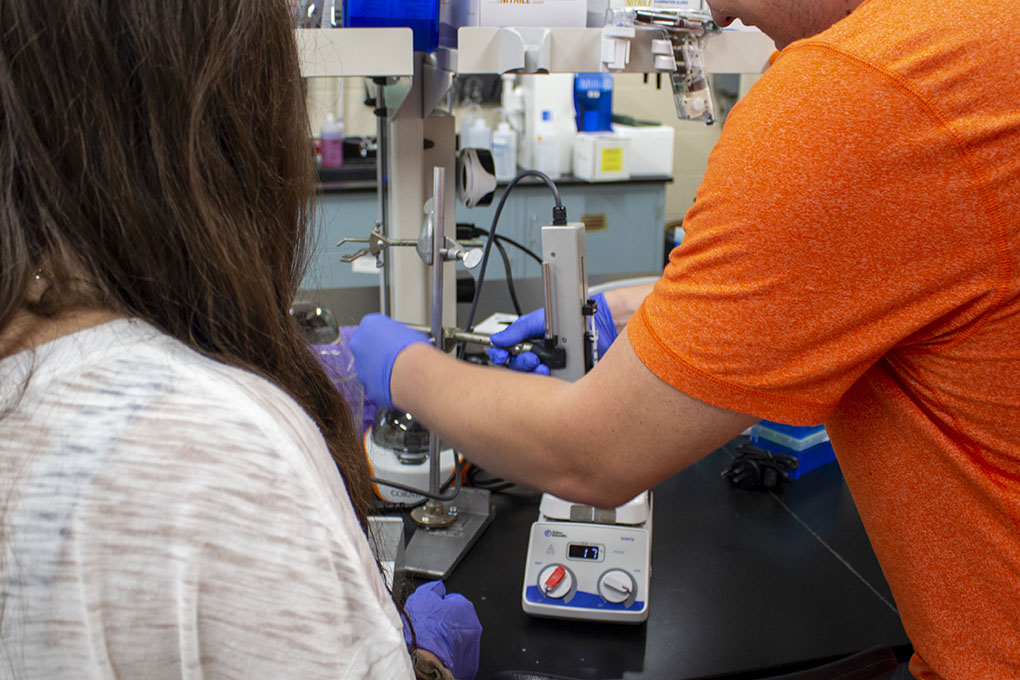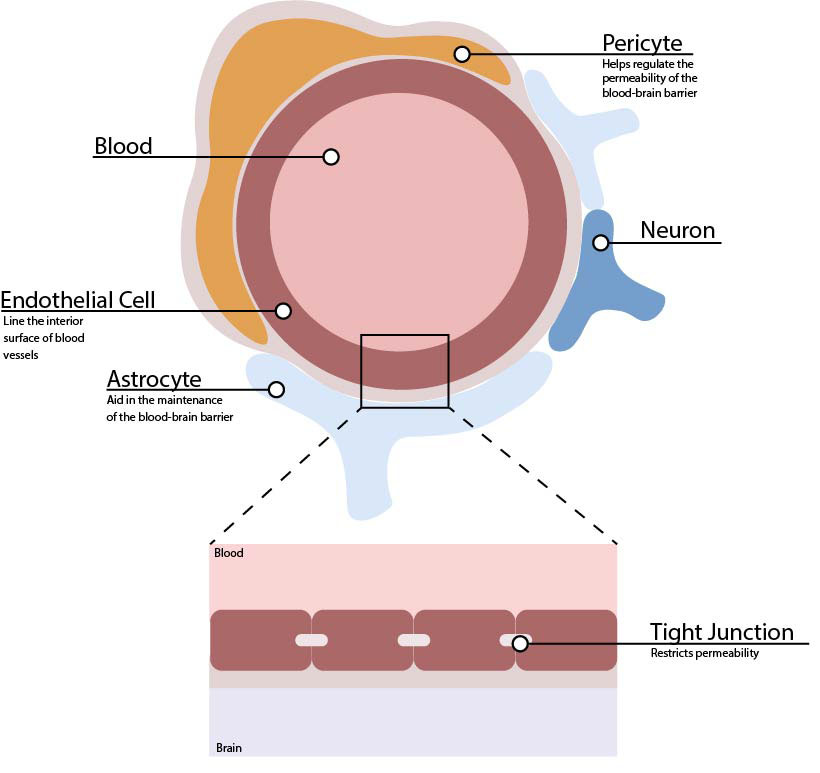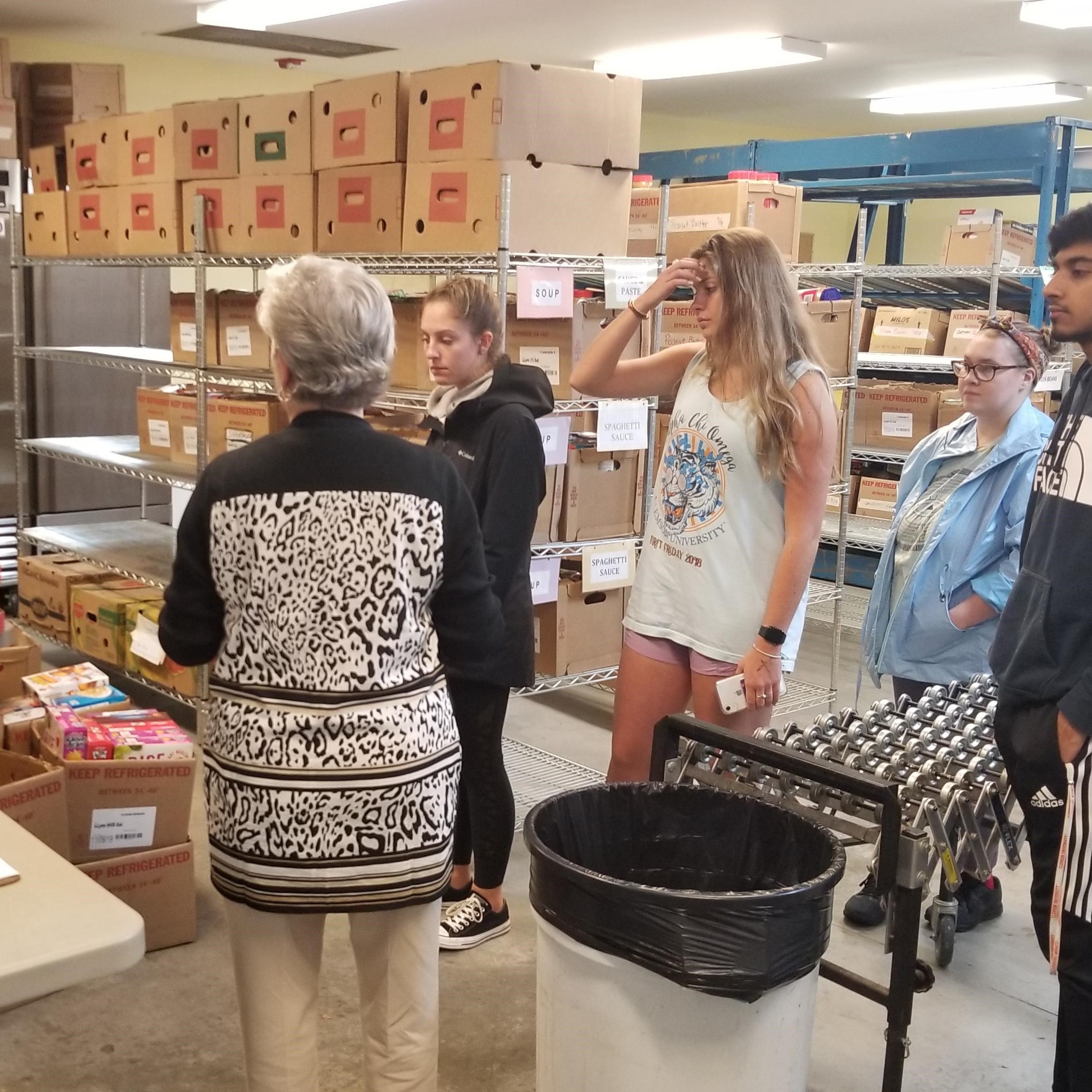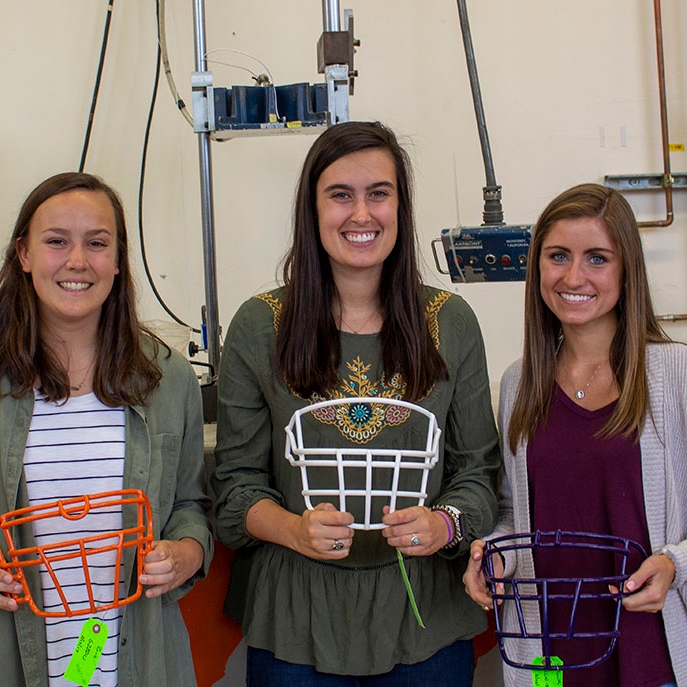Crossing the Blood-Brain Barrier
by Alex Richardson
 Due to the complex nature of the central nervous system (CNS), the effects of drugs in the brain can be adverse and unpredictable. To address some of these issues, the Modulating Nanoparticle Shape to Enhance Blood-Brain Barrier Delivery Creative Inquiry project mentored by Dr. Jessica Larsen in the Department of Chemical and Biomolecular Engineering, is exploring effective strategies for drug delivery to the brain. The overarching goal of the project is to develop nanoparticles that effectively cross the blood-brain barrier (BBB).
Due to the complex nature of the central nervous system (CNS), the effects of drugs in the brain can be adverse and unpredictable. To address some of these issues, the Modulating Nanoparticle Shape to Enhance Blood-Brain Barrier Delivery Creative Inquiry project mentored by Dr. Jessica Larsen in the Department of Chemical and Biomolecular Engineering, is exploring effective strategies for drug delivery to the brain. The overarching goal of the project is to develop nanoparticles that effectively cross the blood-brain barrier (BBB).
The blood-brain barrier is the body’s first line of defense against infections that are able to reach the brain. The BBB keeps harmful chemicals out of the brain, but it also prevents many beneficial therapeutics from entering the brain. Less than 2% of small molecule drugs can pass the BBB. Larsen’s Creative Inquiry team developed a method to change the shape of nanoparticles, which act as a protective layer around the drugs, allowing them to cross the BBB. The team is focusing their research on how shape impacts drug delivery using nanoparticles. To accomplish this, the team is utilizing osmotic pressure gradients to change spherical vesicle nanoparticles into more prolate-like shapes which are more effectively taken up by cells. This work led to a Creative Inquiry student first-authored paper in the journal Nanotechnology. These prolate shapes will allow for the development of more effective treatments for CNS disease.

Due to the complex nature of the central nervous system (CNS), the effects of drugs in the brain can be adverse and unpredictable. To address some of these issues, the Modulating Nanoparticle Shape to Enhance Blood-Brain Barrier Delivery Creative Inquiry project mentored by Dr. Jessica Larsen in the Department of Chemical and Biomolecular Engineering, is exploring effective strategies for drug delivery to the brain. The overarching goal of the project is to develop nanoparticles that effectively cross the blood-brain barrier (BBB).
The blood-brain barrier is the body’s first line of defense against infections that are able to reach the brain. The BBB keeps harmful chemicals out of the brain, but it also prevents many beneficial therapeutics from entering the brain. Less than 2% of small molecule drugs can pass the BBB. Larsen’s Creative Inquiry team developed a method to change the shape of nanoparticles, which act as a protective layer around the drugs, allowing them to cross the BBB. The team is focusing their research on how shape impacts drug delivery using nanoparticles. To accomplish this, the team is utilizing osmotic pressure gradients to change spherical vesicle nanoparticles into more prolate-like shapes which are more effectively taken up by cells. This work led to a Creative Inquiry student first-authored paper in the journal Nanotechnology. These prolate shapes will allow for the development of more effective treatments for CNS disease.
The team is also working to better understand other aspects of the CNS including neurodegeneration—the loss of neuron function. Chloe Champion, a senior biochemistry major, is studying the correlation between CNS inflammation and neurodegeneration. Inflammation in the brain is linked to poor clinical outcomes in diseases of the central nervous system. Champion is trying to determine if certain cytokines (molecules that affect cell signaling) can cause normal cells to mimic disease cells in cultures. This research will contribute to a better understanding of CNS diseases.
This Creative Inquiry project is providing students the opportunity to gain lab experience, preparing them for future careers in biomedical research. “[This experience] provides independence by working on my own project allowing me to learn how to troubleshoot issues, which will prepare me future careers,” Champion said. Larsen believes that new treatments for neurological diseases will be developed through studying many facets of the CNS.
CONTACT
Barbara J. Speziale
Director
(864)656-1550
bjspz@clemson.edu
Cora Allard-Keese
Assistant Director
(864)656-0721
callara@clemson.edu


